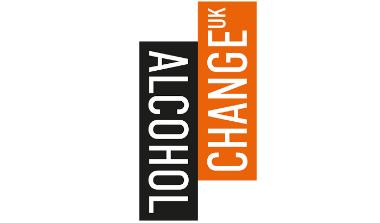Drinking & Mental Health: Does It Really Help?
Mental Health / Alcohol GuidanceIn this blog, pharmacist Andy Boysan discusses the effect of alcohol on our mental health, including its association with relieving stress and its impact on anxiety and depression.
When we’ve had a tough day, one of the ways that many of us relax and de-stress is by opening a bottle of wine or getting a beer from the fridge. If we’re feeling down, stressed or anxious, drinking alcohol can seem like a good idea, making us feel better for a short period of time.
However, in the long-term, drinking can cause all sorts of problems for our mental health.
Drinking lots of alcohol regularly can disrupt the balance in our brains and actually make stress worse — as well as exacerbating other mental health problems like depression. Here is more on the impact of alcohol on mental health.
Alcohol and our brain chemistry: a brief overview
You may know that alcohol is a depressant. This means that it affects the brain’s chemistry and disrupts the delicate balance in the brain. Alcohol affects the body’s neurotransmitters — chemicals that send messages between the nerves in your brain.
So what does this mean for us? Well, what this actually means is that alcohol can change our mood, emotions and thoughts. It can even affect our actions as well.
You might notice this as initially feeling more confident and less stressed when you first have a drink. However, as you drink more, the chemical changes in the brain increase. This can mean your mood fluctuates and more negative feelings start to take over, such as anxiety, depression, anger, and even aggression. It can also numb your emotions too.
Alcohol and stress: does it really help?
Many people use alcohol as a way of relaxing and reducing stress. It seems like a quick fix: we have a drink or two and we instantly feel calmer and more relaxed.
This is a common misconception. While a drink may help you feel more at ease initially, this feeling tends to be short-lived, and over time, alcohol actually does the opposite.
The initial relaxing effect of drinking wears off shortly, and once it does, more negative feelings can start to creep in. The act of drinking alcohol itself can make you feel stressed and anxious.
If you drink a lot, then you may regularly feel unwell or hungover, which will create more stress — but you might not make this connection yet.
The impact of alcohol on pre-existing poor mental health
Heavy drinking can contribute to mental health problems such as anxiety and depression in the long run. This is because of what we mentioned before: alcohol affects your brain chemistry, causing low moods and increased depression.
Alcohol may be used to ‘numb’ emotions so we can avoid dealing with upsetting problems or difficult situations in our lives. It goes without saying that this isn’t a great coping mechanism; your feelings may build up, become overwhelming and be harder to deal with in the long run.
If you’re drinking heavily to feel better, then you will probably build up a tolerance to alcohol over time, which means you’ll have to drink even more to escape how you’re feeling.
Alcohol misuse can be particularly dangerous if you suffer from depression; excessive drinking is closely linked to depression and the two feed into each other, creating a vicious circle. In severe circumstances, alcohol can cause people to behave impulsively or irrationally, causing them to take dangerous actions such as self-harm or even suicide.
How alcohol can change perception
Alcohol doesn’t just change your mood and how you feel; it also alters your perception. When we’re drinking, alcohol can change how we read situations — meaning that we misinterpret social cues, body language, and dialogue.
We might take offence, or feel upset or paranoid. This may cause us to respond in a way that can be harmful and upsetting to ourselves and those around us.
This can have a huge impact on not only your personal mental health but that of your loved ones and friends, having a detrimental effect on your relationships with others.
Hangovers and anxiety
When we think about the impact of alcohol on mental health, some of us only consider the state of being drunk or under the influence of alcohol.
However, the immediate aftermath of drinking — hangovers — can have a huge impact on our mental health. You might associate hangovers with physical symptoms such as a headache or feeling nauseous, but you may also notice psychological symptoms too, such as feelings of worry, guilt, stress or unease. You may worry about what you said or did the night before, as alcohol continues to cause an imbalance in your brain chemicals.
This is known as ‘hangxiety’ - hangover anxiety. It might be tempting to try and ‘treat’ or hide these feelings of anxiety and unease during a hangover with a ‘hair of the dog’. However, starting to drink again to get over your hangxiety can lead to an unhealthy pattern of behaviour and dependency.
Alcohol can have a huge impact on your mental health, particularly if you are drinking heavily and regularly, and can lead to low mood, anxiety, and depression. Reducing the amount you drink can help to manage symptoms and improve your mental health.
























































